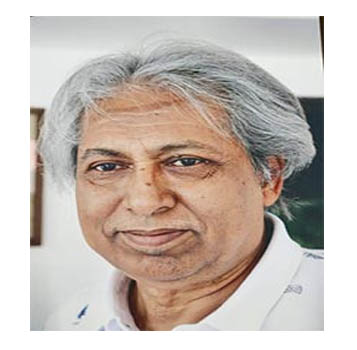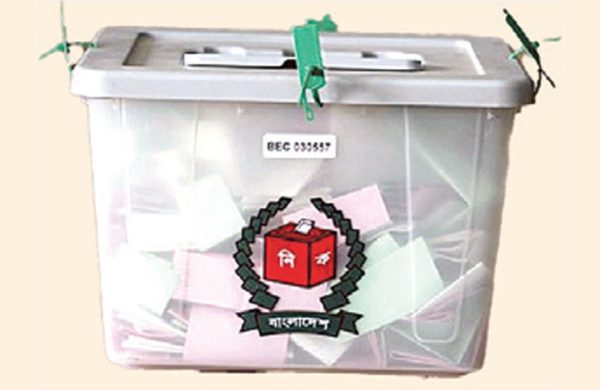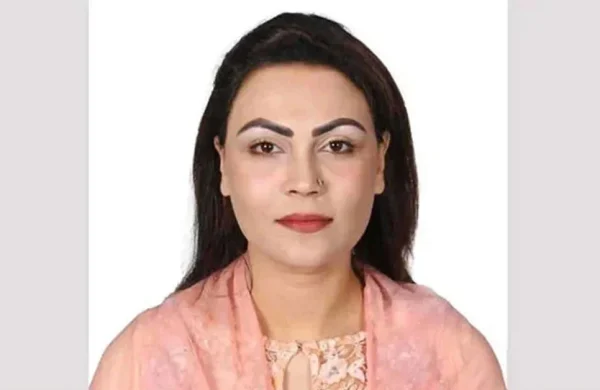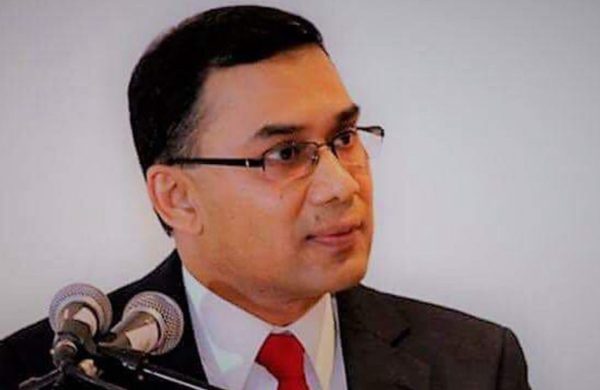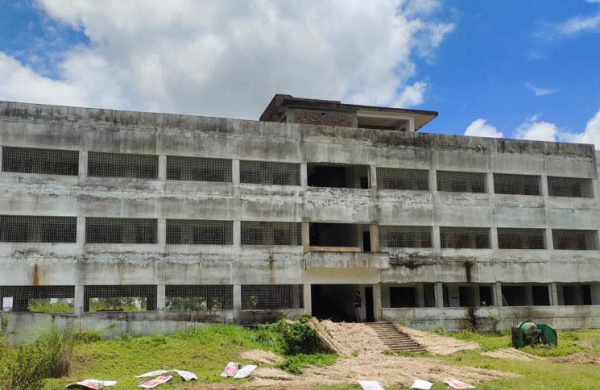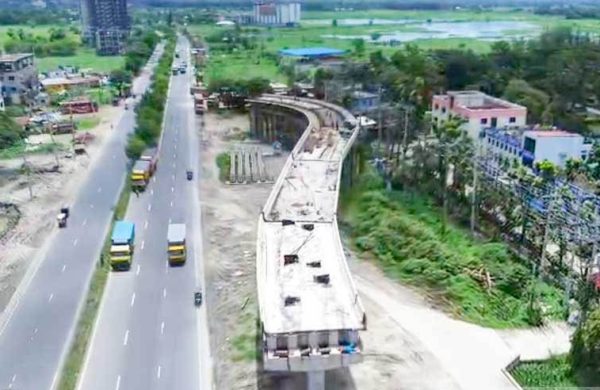‘The Invention of Shoes’ and state reform
- Update Time : Monday, July 28, 2025

—Audite Karim—
Since January, there has been a great commotion over state reform under the name of the National Consensus Commission. Under the coordination of the commission’s Vice President Ali Riaz, meetings have been held day after day with political parties. Detailed analyses of state reform have been discussed. From commas to semi-colons, everything is being debated. Arguments rage over what should or shouldn’t be included in state reform, leading to political divisions. It seems as though all the intellectuals have gathered with the sole aim of saving the state. Hearing them, it feels like either the country will be saved or meet its doom. Their constant “discoveries” in state reform seem to thrill them. They are diving into the ocean to find pearls. But is that the reality?
This frenzy and activity surrounding state reform reminded me of Rabindranath Tagore’s poem “The Invention of Shoes.” In the poem, when a solution was sought to prevent the king’s feet from getting dusty, ministers, soldiers, and guards became frantic. The king was agitated. In the end, a humble cobbler suggested a simple solution – wrap the king’s feet in leather. That resolved the crisis. A seemingly insignificant person’s advice led to the resolution of a major problem. The current fuss about state reform evokes the same story.
On 13 July 2023, the BNP proposed a 31-point plan for state reform. Interestingly, many of the issues that Dr Ali Riaz and Badiul Alam Majumdar are now tirelessly discussing are the same as those outlined in the BNP’s proposal. They are trying to present them in colorful and novel ways. But these issues had already been discussed and presented before. Almost all democratic political parties in the country had reached a consensus on them.
What was the source of BNP’s 31 points? After the rigged 2018 election, the BNP realised that free and fair elections were no longer possible under the current government. Years of ruling had turned the Awami League government into a partisan force that captured state institutions. Each institution was either destroyed or monopolised. This resulted in an authoritarian regime. To stay in power, the Awami League politicized everything – justice, law, administration, police, and the bureaucracy. The only way out was a complete reform of the state system.
So, post-2018, BNP initiated dialogues with other political parties, intellectuals, educators, doctors, and professionals. After extensive discussions, the 31-point proposal was prepared, envisioning a balanced state structure. It was a document of national unity.
This 31-point proposal, if implemented, would prevent any one party from becoming authoritarian. It aims to ensure democratic governance and transparency through balance of power and accountability – so that the people’s rights are established.
Let’s look at where the BNP’s 31 points and the current National Consensus Commission’s reform efforts differ.
One of the key issues is the caretaker government. The second point in BNP’s proposal clearly states, “To restore democracy and voting rights in Bangladesh and to establish a transparent democratic process, a non-partisan caretaker government system will be introduced during elections.” This idea, part of BNP’s 31 points, was developed in consultation with almost all anti-authoritarian political parties.
Another much-hyped proposal of the commission is limiting the prime minister to two terms. They are presenting this as their discovery. But in BNP’s fourth point (from 13 July 2023), it says, “No one shall serve as Prime Minister for more than two consecutive terms.” This, too, was developed in discussion with political parties and professionals.
After months of effort and spending, the commission now proposes the establishment of an upper house in parliament. But BNP’s fifth point had already stated, “Alongside the existing parliamentary system, a bicameral legislature will be introduced comprising eminent citizens, scholars, professionals, political scientists, sociologists, and experienced administrators.”
The commission has also held 13 meetings just on Article 70 of the Constitution. Vice President Ali Riaz complains about the complexity of the matter. But BNP’s sixth point already addresses this: “Except for confidence votes, budget bills, unconstitutional amendments, and national security issues, MPs will be allowed to vote independently. Article 70 will be reviewed accordingly.” This point was developed with political consensus.
Debate is ongoing about the powers of the prime minister. Yet, BNP’s third point already covered this, “Balance will be brought to the executive powers of the Prime Minister and the Cabinet. The powers and responsibilities of the executive, legislative, and judiciary will be harmonized to ensure checks and balances.”
The commission has discussed the appointment process of the Chief Election Commissioner and other commissioners. But BNP’s proposal already called for amendments to the 2022 law governing such appointments.
Now, there’s discussion about removing party symbols in local government elections – another proposal BNP made back in 2023.
So, the question arises: If a specific draft on state reform had already been developed through political dialogue, why did the commission waste seven months revisiting the same topics?
What was the point of all this repetition? The most straightforward path would’ve been to take BNP’s 31-point proposal to the table, invite all political parties to deliberate on each point, and determine what was agreeable or not. That would have concluded the reform agenda in a month. The groundwork was already there. What then was the need for so many meetings?
Two key things are worth noting here: First, the BNP did not prepare the 31-point proposal unilaterally. It was developed through dialogue with various political parties. And, secondly, the BNP never claimed these 31 points were final or unchangeable. It was a proposal, a foundation for dialogue and consensus.
Therefore, such a proposal deserves respect. This would have saved time and public money.
But now, figures like Dr Ali Riaz and Badiul Alam Majumdar are presenting each idea as if they are new inventions. They’re delaying decisions in the name of discussion and creating uncertainty around the election. They’re also fostering a perception that political parties do not want reform. For whose benefit is this being done?
The so-called wise members of the Consensus Commission are, like in “The Invention of Shoes,” offering a new proposal every day.
I don’t want to believe that those in the National Consensus Commission were unaware of the 31-point proposal. If they knew and still ignored it, then this whole storm around state reform, which is dividing political parties, may have a more sinister motive. It’s time to consider whether this is part of a deeper conspiracy to delay elections, make them uncertain, and fracture the unity against fascism.
——————————————————————-
The writer is a playwright and columnist. Email: [email protected]


